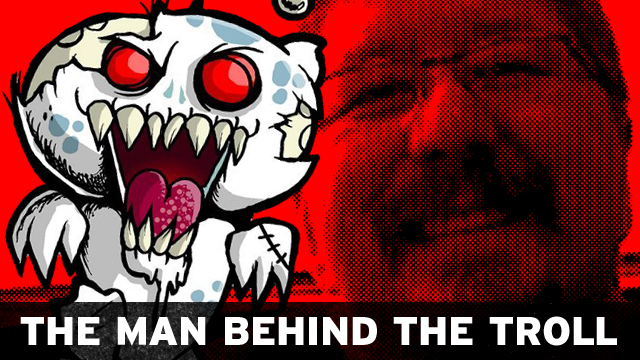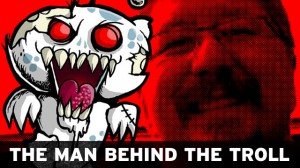
The Internet Home of the Cowards
October 30, 2012Policy/Contributor Blogs ArticleGawker’s Adrian Chen has the internet reeling from a recent public exposé he authored. Chen did the unthinkable: he publicly outed a Reddit user, Michael Brusch (formerly known only by his Reddit username Violentacrez).
Brusch isn’t a sympathetic character. He moderated several of Reddit’s most offensive subreddits, including:
- r/chokeabitch
- r/niggerjailbait
- r/rapebait
- r/hitler
- r/jewmerica
- r/misogyny
- r/incest
He also moderated two subreddits that have been shut down: r/jailbait (shut down after Anderson Cooper reported on it last year) and r/creepshots (shut down during the present controversy).
As Chen writes, “You can look those up on Reddit and visit them if you’d like to ruin your day, but the content is self-explanatory.”
For the sake of discussion, I’ll explain the content of one subreddit: r/creepshots consisted of often-sexualized photos of women taken without their permission. Supporters of r/creepshots argue the photos are taken in public places where these women have no reasonable expectation of privacy.
Let’s back up and talk about Reddit for a moment. With one of the most active user bases on the internet, Reddit boasts over 1 billion page views every month—well over 20 million page views daily. Over 65% of Reddit’s users identify as male. Reddit’s user base has been characterized as misogynistic and sexist by multiple news outlets (see, e.g., The Atlantic, The Daily Dot, xojane.com, SF Weekly). Of course, not all Redditors take part in the reprehensible behavior exposed in these articles—but Reddit is essentially a democracy, so the site’s most popular opinions win. Upvotes and downvotes rule the day.
So why does anyone care if Brusch is outed? Because Redditors (Reddit users) consider anonymity on Reddit sacred. Chen should come well before Brusch on our public enemy list, so much so that Reddit moderators have banned all links to Gawker Media from countless subreddits, including several of the website’s most popular (e.g., r/politics and r/todayilearned).
The Gawker bans derive from an overwhelming consensus among Redditors that principles of free speech protect racist, bigoted speech and creepy sexualized photos taken without a woman’s consent. But the “outing” of a Reddit user? That’s unforgivable.
Do Redditors have a point? Should user anonymity be especially sacred?
Anonymity is constitutionally protected speech (McIntyre v. Ohio Elections Commission (1995)). In McIntyre, the Supreme Court held that a Ohio statute prohibiting anonymous political or campaign literature is unconstitutional. It makes sense: we need McIntyre to prevent the outing of political dissidents (for a relevant modern example, Chinese dissidents use anonymity online for organizing and reporting what is otherwise subject to prosecution in China).
A couple of years ago, the Supreme Court limited McIntyre in Doe v. Reed (2010), holding that the First Amendment does not prevent the disclosure of signatures on a legislative referendum. The distinction was based on the notion that citizens, in exercising their right to legislate in the referendum context, aren’t protected by secrecy. The Court considered Doe an exception to McIntyre because releasing names on a referendum just doesn’t silence people in the same way as releasing names of political dissidents would.
The Doe opinion’s footnote 4 contains some interesting language:
“Justice Scalia conceives of the issue as a right to anonymous speech. . . . But our decision in McIntyre posited no such freewheeling right. The Constitution protects ‘freedom of speech.’ . . . . That freedom can be burdened by a law that exposes the speaker to fines, as much as it can be burdened by a law that exposes a speaker to harassment, changes the content of his speech, or prejudices others against his message. . . . The right, however, is the right to speak, not the right to speak without being fined or the right to speak anonymously.” (emphasis mine)
The Court, above, is responding to Justice Scalia’s concurrence—which is drawn from his convictions that McIntyre was wrongly decided (he dissented in that case) and that the First Amendment does not include a protection for anonymity. Scalia concurs in Doe, making a philosophical point about anonymity in America:
“Requiring people to stand up in public for their political acts fosters civic courage, without which democracy is doomed. For my part, I do not look forward to a society which, thanks to the Supreme Court, campaigns anonymously (McIntyre) and even exercises the direct democracy of initiative and referendum hidden from public scrutiny and protected from the accountability of criticism. This does not resemble the Home of the Brave.”
The Supreme Court cases looking at speech often step back and ask, “Who does this speech offend” or “victimize”? Let’s do that practice here. Many Redditors are saying you can’t compare the two alleged victims, Brusch and the unknowing subjects of the r/creepshots photos. They argue that Brusch, the publicly outed (or “doxxed,” in hackerspeak) Reddit moderator is the real victim: he has since lost his job in addition to the public shaming. On the other hand, let’s also take a look at one of the hypothetical, unidentified female victims of r/creepshots—after all, she’s been outed too. We (the internet collective) might not know her name, but we do have her compromising photo. Maybe she, too, was fired—in this case, for a seemingly promiscuous photo taken without her consent. Do we care that becoming involuntary masturbation material for creepy guys is now a part of her destiny forever? (As we all know: the internet never forgets).
Reddit, as a private organization, can obviously do whatever it wants—but its user base wants to take free speech as far as the U.S. government allows.
Why should Reddit protect the internet’s cowards? I agree that political dissidents from other countries need protection, and Reddit could be a vessel for that. I also believe that the internet is a powerful anonymous outlet for those questioning their sexuality, as anonymity enables many to discuss predicaments without fear of rejection from judgmental families and communities.
While it might be tough for the Supreme Court to find a workable distinction, I think Redditors can—they just overwhelmingly don’t want to. Redditors point to the blog People of Walmart to argue r/creepshots photos are no different: in neither case has the anonymous poster obtained the photographed person’s consent. But pointing to someone else’s equally deplorable behavior only dodges the question. Reddit is hosting these subreddits, financially backing them by powering the servers that keep these subreddits readily accessible.
Can Reddit make a meaningful distinction that would protect the noble anonymous (political dissidents and bullied LGBTQ teens) from the shameful anonymous (Brusch and bullies themselves)? Could Reddit functionally distinguish some content from others by banning certain subreddits? What criteria could it use?
I propose Reddit prevent the desire to “out” certain users by banning certain content. Chen outed Brusch because he was engaged in objectively outrageous and deplorable behavior—behavior I don’t think is that hard to define. Reddit should turn towards the Fourteenth Amendment, establishing free speech parameters that protect against hate speech targeting the LGBTQ community in addition to the Supreme Court-acknowledged protected classes: race, color, religion, national origin, age, sex, and disabled status. Every subreddit Brusch moderated contained content valuing discrimination of these protected classes.
Reddit could have more success and more users if it establishes itself as an internet safe zone instead of an enabler of cowardly hate speech. After all, fortune favors the brave.
You may also like
2 comments
- March 2025
- February 2025
- November 2024
- October 2024
- April 2024
- March 2024
- February 2024
- November 2023
- October 2023
- April 2023
- March 2023
- February 2023
- January 2023
- December 2022
- November 2022
- October 2022
- May 2022
- April 2022
- March 2022
- February 2022
- January 2022
- December 2021
- November 2021
- October 2021
- May 2021
- April 2021
- March 2021
- February 2021
- January 2021
- November 2020
- October 2020
- September 2020
- August 2020
- July 2020
- June 2020
- May 2020
- April 2020
- March 2020
- February 2020
- January 2020
- November 2019
- October 2019
- September 2019
- April 2019
- February 2019
- December 2018
- November 2018
- October 2018
- September 2018
- March 2018
- February 2018
- January 2018
- December 2017
- November 2017
- October 2017
- September 2017
- May 2017
- April 2017
- March 2017
- February 2017
- December 2016
- November 2016
- October 2016
- April 2016
- March 2016
- February 2016
- January 2016
- December 2015
- November 2015
- October 2015
- June 2015
- May 2015
- April 2015
- March 2015
- February 2015
- January 2015
- December 2014
- November 2014
- October 2014
- August 2014
- March 2014
- February 2014
- January 2014
- December 2013
- November 2013
- October 2013
- September 2013
- May 2013
- April 2013
- March 2013
- February 2013
- January 2013
- December 2012
- November 2012
- October 2012
- September 2012
- June 2012
- April 2012
- March 2012
- February 2012
- January 2012
- December 2011
- November 2011
- October 2011
- September 2011
- August 2011
- April 2011
- March 2011
- November 2010
- October 2010
- September 2010

There are definite pros to online anonymity, as well as very definite cons, cons which are made obvious by the situation of Michael Brusch. And a lot of people do advocate that we get rid of online anonymity altogether. However, it is hard for me to see how we could create a system in which the internet would no longer be anonymous. With steadily increasing technology, such a system would be next to impossible to control. Even if Reddit were to get rid of anonymity on its site, users would just find another site which does allow it. And if the law tries to ban online anonymity, there is always the possibility that people will use public computers or friend’s computers to maintain secrecy. I think what you propose would be a good solution to this problem – to make websites accountable for what is posted on them, and responsible for removing content that surpasses a certain level of offensiveness. Online anonymity is a reality of the internet that will not be so easy to get rid of, so the best we can do is try to regulate it so that its benefits begin to outweigh its harms.
I agree with both of you on this one. It would be incredibly difficult to do away with anonymity throughout the internet, let alone one website. Reddit may fall, but another would just spring up to take its place. I do believe that a solution might begin with holding the websites accountable for what they allow to be posted on them, but how would that be enforced? If it is enforced by moderators, is it merely up to to the moderators to decide what is postable and what isn’t? Would posters be able to bring a lawsuit against the website itself for posts that they found reprehensible and unprotected? And if that’s so, can other posters bring a lawsuit for posts that have been blocked by a moderator that should have been let through? It seems like enforcement might be an extension of the proposed SOPA Act, which has been hotly contested. Regardless, anonymity seems to be a large part of cyber-bullying and although a solution is difficult to come to, the discussion should be more prevalent than it is currently.